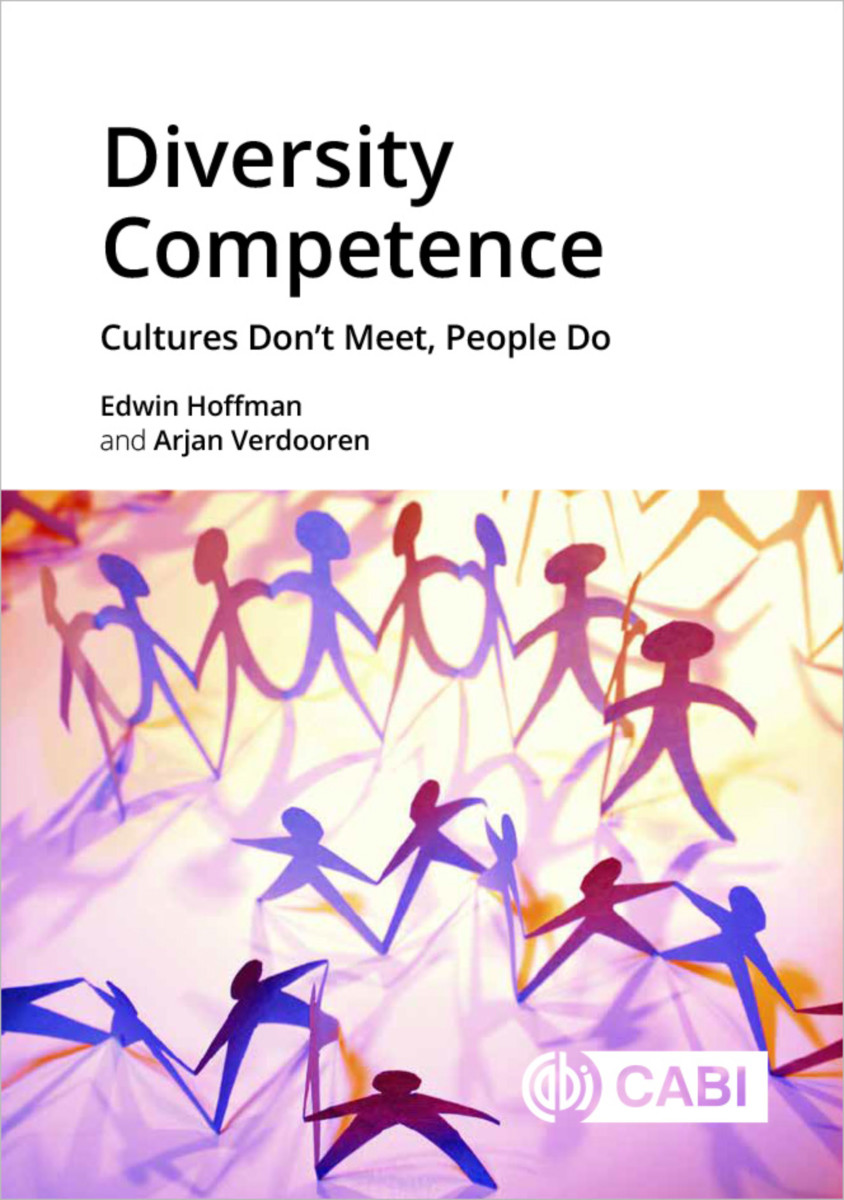Diversity Competence
Cultures Don’t Meet, People Do
- Publisher
CABI - Published
7th November 2019 - ISBN 9781789242409
- Language English
- Pages 352 pp.
- Size 6" x 9"
In today's world many people live, learn and work in international and multicultural environments. Intercultural communication has become an important topic in many fields of work and study. Given the complexities of globalization, knowledge of cultures and cultural differences is rarely sufficient.
In this book, interpersonal communication forms the point of departure: the meeting of people, not of cultures. The authors
describe what diversity competence entails: which processes, challenges and skills are relevant in a "superdiverse" world. They demonstrate how the TOPOI model (a systemic framework of points of attention and interventions for diversity-sensitive communication) offers an inclusive, communicative approach to analyzing and addressing potential miscommunication.
- Discusses theory from several different fields.
- Case studies provide practical examples and guidelines.
- Companion website with extra case studies and study assignments.
The target audience for Diversity Competence includes students, educators and professionals in the fields of communication and media, business, management and leadership, governance and international relations and cooperation.
Introduction: intercultural communication in a globalized world
1. Culture: everywhere and nowhere
2. From intercultural competence to diversity competence
3. Critical diversity issues: power and ethics
4. Diversity-sensitive communication and the TOPOI model
5. The TOPOI area Tongue: verbal and non-verbal language
6. The TOPOI area Order: views and logic
7. The TOPOI area Persons: identity and relationship
8. The TOPOI area Organization
9. The TOPOI area Intentions: motives
10. TOPOI interventions
11. Applications of the TOPOI model
Edwin Hoffman
Dr Edwin Hoffman (Dutch nationality, born in Indonesia and living in Austria) works as an independent researcher, trainer and adviser in intercultural communication and diversity competence at Jaksche & Hoffman. Edwin is associated with the Alpen Adria University in Klagenfurt, Austria, as an external lecturer and is a regular guest lecturer at universities and universities of applied sciences. Edwin developed the TOPOI model: a systemic framework of points of attention and interventions for diversity-sensitive communication. He is the author of several publications, including the main publications Interculturele gespreksvoering: Theorie en Praktijk van het TOPOI model (in Dutch, 2013, revised edition 2018), Interkulturelle Gesprächsführung: Theorie und Praxis des TOPOI Modells (Intercultural conversation: Theory and Practice of the TOPOI model) (in German, 2015), and, is co-author, De stille kracht van leiderschap: Een Indisch perspectief (The silent power of leadership: An 'Indo' perspective) (2008).
Arjan Verdooren
Arjan Verdooren was born and raised in one of Amsterdam's most multicultural suburbs. During his studies in Communication, he developed a deep interest in intercultural communication. After receiving his MSc, he started working for the Royal Tropical Institute (Koninklijk Instituut voor de Tropen), an independent knowledge centre for international and intercultural cooperation, as a trainer and consultant of intercultural communication, intercultural competence and cultural diversity. Over the years, he has worked with a wide range of clients, ranging from companies to schools and professional football organizations. He is also a regular guest lecturer at several universities and universities of applied sciences. Arjan sees it as his main contribution to the intercultural field to connect theory and practice and has published several articles for professional and academic journals. He is still associated with the Royal Tropical Institute and divides his time between Amsterdam, The Netherlands and Göteborg, Sweden.


